subsidies
Latest

Foxconn drastically scales back plans for $10 billion Wisconsin factory
After promising 13,000 new jobs in the state, Foxconn will only create 1,454 positions.

FCC outlines $200 million COVID-19 telehealth plan
Today, the FCC announced a few additional measures to help the US during the coronavirus pandemic. Chairman Ajit Pai shared plans for a $200 million COVID-19 Telehealth Program, which would equip healthcare providers with the broadband connectivity and devices they need to provide telehealth services. The FCC also eased off its ongoing crackdown on cell phone subsidy abuse, saying that it won't de-enroll participants until at least May 29th.

FCC crackdown on cellphone subsidies leaves millions without service
The Ajit Pai-era FCC has spent much of its energy cracking down on claimed abuses of the Lifeline subsidy program, but this anti-fraud effort may be hurting low-income households more than it helps. The investigative news outlet Center for Public Integrity has used FCC data to determine that nationwide enrollment for cellphone subsidies has dropped by about 2.3 million people, or 21 percent, since 2017. The cuts have been particularly severe in places like the District of Columbia, where 49 percent of Lifeline users lost their subsidies between March 2018 and June 2019. Mississippi, Wyoming and Puerto Rico also lost a third or more of their enrollment in the same time frame.

Foxconn's Wisconsin plant opens next May with fewer jobs than promised
Foxconn's long-promised factory in Wisconsin will finally begin production in May 2020, but to start, it's only creating 1,500 jobs. That's far fewer than the 13,000 jobs it once said it would add. At this rate, Foxconn will likely lose out on hundreds of millions of dollars in state subsidies, many of which were meant to reward job creation.
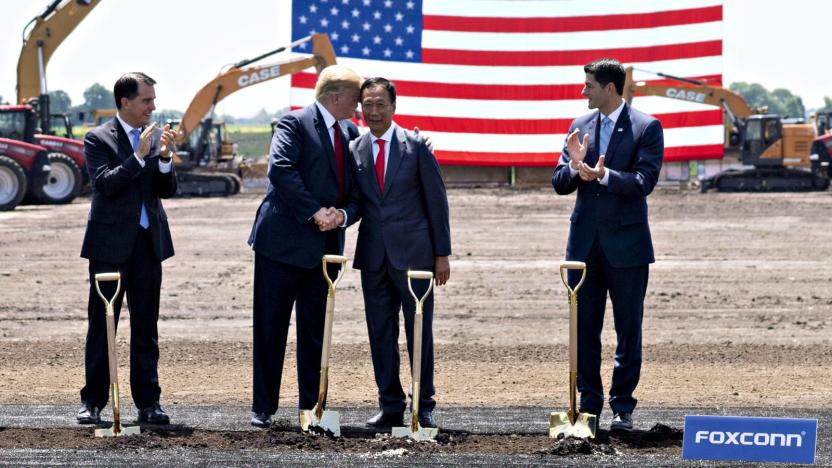
Foxconn pledges to still build Wisconsin factory after Trump talks
Following talks with President Trump, Foxconn says it is indeed building a factory at its Wisconsin campus. Earlier this week, the company caused a furor when it said it's shifting plans away from manufacturing to focus on a research and engineering center. Now it seems it's doing both.
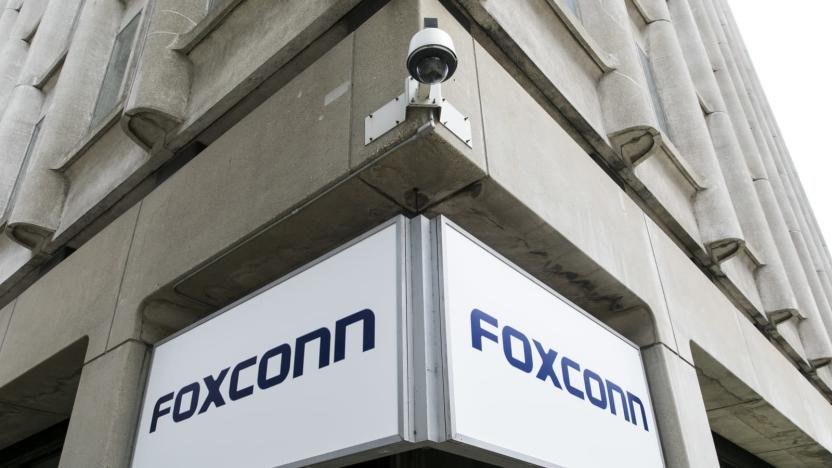
Foxconn may not manufacture anything in Wisconsin after all
In 2017, Foxconn revealed plans to build a Wisconsin campus as part of a $10 billion investment that would create up to 13,000 jobs in the state. It pledged to build large-screen LCD displays there, and President Trump touted the project as a victory for his goal of reviving US manufacturing fortunes. Fast forward to 2019, and Foxconn says around three-quarters of jobs at the campus will be in design and research and development -- and it may not manufacture displays there at all.
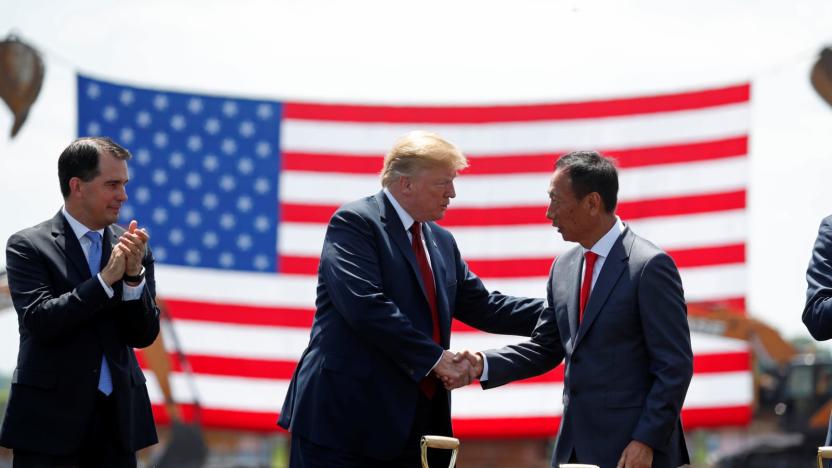
Foxconn says it won't staff Wisconsin plant with workers from China
Last year, Foxconn, a supplier to companies like Apple and Microsoft, announced plans for a factory in Racine, Wisconsin, a deal that promised to bring a $10 billion investment and 13,000 jobs to the area. But the details of that plan have changed in the past months, and now the Wall Street Journal reports that the company is looking to bring employees over from China in order to staff the facility. Foxconn, however, has denied those reports.
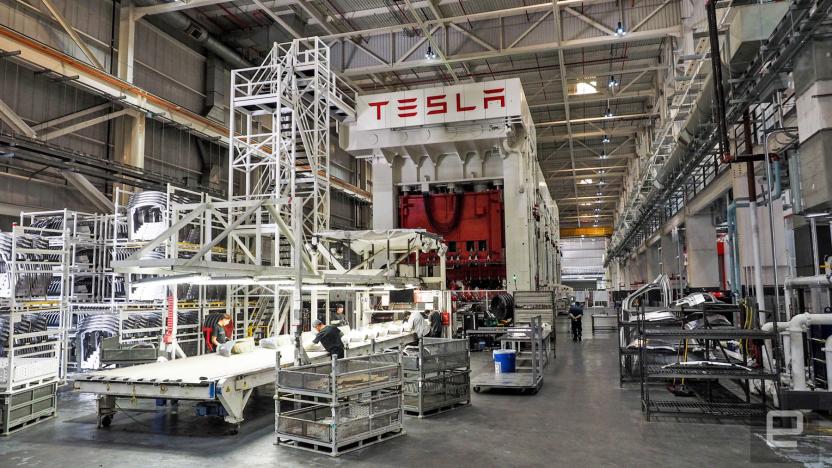
Tesla beats Ontario government in 'unjust' EV rebate case
Tesla has won its case against the Ontario government over electric vehicle rebates. Back in June, Ontario's new government axed the province's Electric and Hydrogen Vehicle Incentive Program, a scheme which gave EV buyers rebates of up to $14,000 (around $10,700 US). Tesla's problem stemmed from the government's decision to continue, until September 10th, to honor rebates for those who bought an EV through a dealership -- Tesla sells its vehicles directly to buyers, and so claims the decision "unjustly targeted" Tesla Canada and its customers.
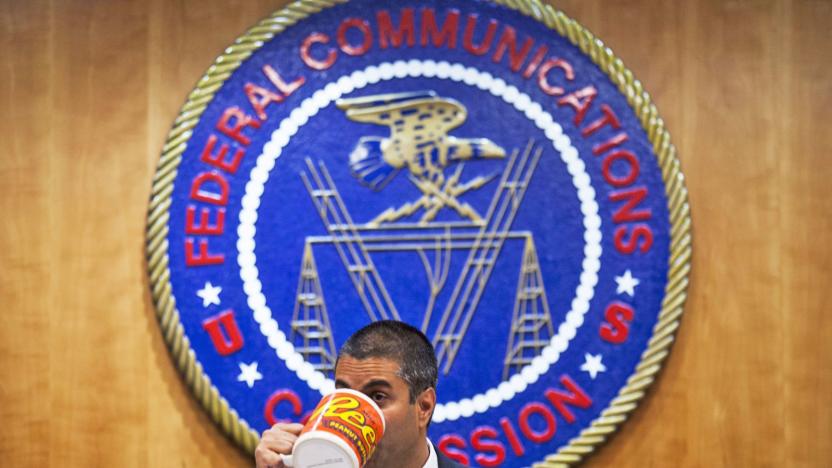
FCC vote could force low-income households offline
Bootstrapping yourself out of poverty via the internet is about to get a lot harder in the US. The FCC, led by industry-friendly chairman Ajit Pai, has voted along party lines to reform the low-income Lifeline broadband subsidy program. Among the most contentious items are a proposal to tighten eligibility requirements and cap spending, and another to halt subsidies through internet resellers like Windstream. If voted through, the latter proposal could force over 70 percent of Lifeline enrollees to seek a new provider, and many would have no option at all.
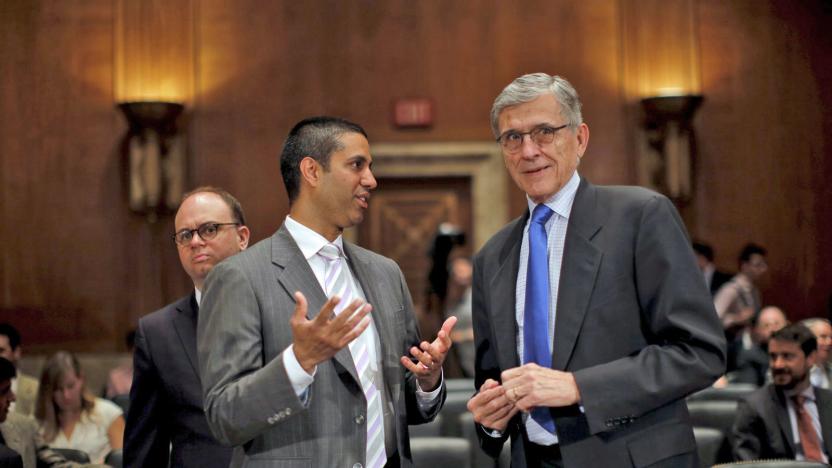
FCC halts nine companies from participating in the 'Lifeline' program
FCC Chairman Ajit Pai announced on Friday that the FCC will not let nine companies participate in the federal Lifeline program, which provides low-cost internet connectivity for some of America's lowest-income households. This decision comes just weeks after Pai's democratic predecessor, Tom Wheeler, had granted the companies permission.

Verizon nixes phone subsidies and simplifies its data plans
Following the lead of alternative carriers like T-Mobile and Google Fi, Verizon announced today that it will be doing away with phone subsidies (the precise opposite of what it said last October) and rejiggering its data plans beginning August 13th. Don't get excited just yet, though, since there's no guarantee that your revamped service charges will be any less than what they are now.

UK government pulls support for new onshore wind farms
In the future, there's a good chance you'll see fewer wind farms being erected in the British countryside. That's because the UK government is killing a subsidy scheme that gives onshore wind farms a helping hand when they sell their electricity to energy suppliers. Under the Renewables Obligation (RO) order, Ofgem currently awards wind farms special certificates based on the amount of electricity they generate. They then sell these to the UK's energy providers, earning a premium on top of their normal wholesale prices.

US Cellular to reintroduce contracts for existing customer upgrades
Snagging a subsidized phone after completing a two-year contract with US Cellular has meant not having to ink another 24-month commitment, but it looks like that's about to change. We've gotten wind from an internal source that the firm will return to its old ways, requiring existing Belief Plan customers angling for discounted hardware to hitch their wagon to the carrier for an additional two trips around the sun. These changes aren't slated to take effect until July 27th, so we recommend pulling the trigger on that upgrade you've been eyeing before then. Update: We've just received a statement from US Cellular confirming the changes. Head past the break to read it in full. [Thanks, Anonymous]

FCC: 41 percent of Lifeline phone subsidies in 2012 weren't verified
The FCC took significant steps to cut the waste from its Lifeline phone subsidy program at the start of last year. However, it might not have gone far enough, if an FCC review of the program prompted by the Wall Street Journal is an indicator. Among the top five providers receiving money for telecom service to the poor in 2012, 41 percent of their customers either couldn't or didn't prove they were eligible. The lack of answers leaves a real possibility that some of the $2.2 billion spent on Lifeline in 2012 might have gone to those who didn't need it. In response, the FCC is keen to claim that its reforms may have saved $214 million last year, but it isn't happy that there may still have been money going down the tubes -- it's investigating the accusations and could levy fines of up to $1.5 million per violation. While only Verizon has gone on the record and says it's been dropping customers who wouldn't prove their eligibility, it's likely we'll know more about the potential excesses in the near future.

Mobile Miscellany: week of January 7th, 2013
If you didn't get enough mobile news during the week, not to worry, because we've opened the firehose for the truly hardcore. This week, both Nokia and Microsoft discussed strategy for the coming year and Verizon's CEO shared his thoughts on the end of subsidies. These stories and more await after the break. So buy the ticket and take the ride as we explore the "best of the rest" for this week of January 7th, 2013.

iPhone coming to T-Mobile in 3-4 months
Speaking at the Consumer Electronics Show in Las Vegas, T-Mobile USA Chief Executive John Legere said that the carrier will begin to sell the iPhone in about "three to four months," and that T-Mobile will be taking a different tack to selling them by dropping subsidies for the phones. At this point, most carriers heavily subsidize the iPhone -- that's why you always get tied into a two-year contract in order to get the newest device at a significant discount. While you may pay more up front for a T-Mobile iPhone, the company hopes to attract customers by not tying them to a long-term contract and offering lower service prices. Legere said that he thinks the plan might increase T-Mobile USA's market share by more than 5 percent by offering the combination of more flexibility and lower prices.

Russian iPhone carrier not happy over price, cites Apple 'dictatorship'
In the Soviet Union, you got a knockoff Motorola brick phone and you were happy. In modern-day Russia, however, you might want an iPhone from OAO Mobile TeleSystems (MTS). You'll pay over US$1,000 for the privilege. The carrier says that makes the iPhone a tough sell in a competitive market. MTS executives criticized Apple as being "in a dictatorship mode where they say, 'This is what you have to do or you don't get the iPhone.' Being arrogant with your partners in big markets doesn't pay off." The cost of the iPhone and the strict retail standards that Apple requires for partners are apparently a burden for MTS, and its executives made their complaints known at an event in New York on July 29. Michael Hecker, MTS's VP of strategy and corporate development, was cited by Bloomberg as saying that Apple would get a larger share of the Russian market by cutting the iPhone's price or helping subsidize it. Russian consumers, unlike those in the U.S., don't sign up for long-term mobile phone contracts, so there's little incentive for carriers to subsidize the cost of the phone the way American carriers do. After the executives chastised Apple earlier in the day, MTS spokesman Joshua Tulgan smoothed things over by saying that "While we have differences with Apple, we have a constructive relationship. Smartphones like the iPhone are important to our customers and our economy and we want to get them into the hands of as many people as possible." #next_pages_container { width: 5px; hight: 5px; position: absolute; top: -100px; left: -100px; z-index: 2147483647 !important; }

Sprint reportedly cancelling its early upgrade program June 1st (update)
Like dominoes, Sprint's consumer-friendly policies continue to fall one at a time. Citing "high costs," the Now Network will begin discontinuing its practice of allowing customers to upgrade their phone 10-14 days prior to the official date of eligibility. According to the memo leaked by TechnoBuffalo, the program will cease to exist as of June 1st. It sounds like this policy change is an unfortunate consequence of the company's large investments in iPhones and its still-dormant LTE network. It may not be enough to convince many Sprint customers to jump ship, but this isn't the first cost-cutting measure put forth by Dan Hesse's team -- and we have a hard time believing it will be the last. We've reached out to Sprint for official comment and will update you as soon as we have word. Update: Sprint sent us a statement about the matter, which you can read below. Apparently, no actual changes to the policy are taking place -- rather, a "reason code" used by customer care representatives to justify early upgrades was removed. Here's Sprint's statement on the policy: We are not making any policy change regarding our phone upgrades. In fact, the 14-day upgrade window was never a program or a policy to our customers - so there is nothing to cancel. We are removing a 'reason code' that made it possible for care reps to sometimes offer an early upgrade - but that code in the system was redundant with the early upgrade benefit we already offer customers. The reality is we already provide customers an early upgrade benefit when they sign up for service by rolling their upgrade eligibility back to the first day of the month. So, if you purchase a phone on the 31st of the month - your upgrade eligibility is rolled to the first of the month (after 20 months). So, that is a 30 day early upgrade advantage. If you bought your phone on the 18th of the month - you would have an 18 day early upgrade advantage, etc. And, if customers have an issue with an inoperable or broken phone before the upgrade date, there are several options they can check into - depending on if they have insurance, they can work with our Service & Repair, or they can buy a refurbished phone, or, in some cases, we can buy back the customer's phone.

T-Mobile CMO: subsidized pricing hurts wireless competition, undermines hardware value
Could an end to unsubsidized smartphones be on its way for US carriers? If T-Mobile's Chief Marketing Officer Cole Brodman had his way, that familiar on-contract pricing would've gone the way of the Dodo a long time ago. Speaking at this week's GeekWire Summit in Seattle, the Magenta exec vented his frustrations with the industry's current business model, citing his belief that low cost handsets not only distort consumers' perspectives, effectively "[devaluing].. the hardware they are using," but also position wireless market players to compete unevenly. When pressed as to why his own network hadn't effected the change, Brodman referenced the lack of cooperation from other major operators, in addition to a market driven by subscribers' purchase habits. As for the fourth place network's glaring iPhone omission, Brodman seemed nonplussed, highlighting the variety of Android and Windows Phones available on its lineup, while asserting his faith in a multi-OS marketplace. While you keep those toes crossed in the hopes of a subsidy-free mobile future, check out the source below for the full panel interview.

Sprint launches early upgrade promo, wants you to stay and chat awhile
In an industry where customer churn can be likened to the fearsome troll under the bridge, Sprint has launched a program designed to keep its favored subscribers around for another two years. While not everyone is eligible -- those who've upgraded less than eight months ago, corporate outfits and those in collections need not inquire -- the program lets customers buy their way out of their current commitment and become eligible for a new, subsidized handset. The promotion begins February 12th and is set to run through the 14th of April, where the amount you pay correlates to the time since your last upgrade. So if you're currently pining for the Epic 4G Touch or the iPhone 4S, just give your local Sprint store a call this Sunday. They just may be able to hook you up.











